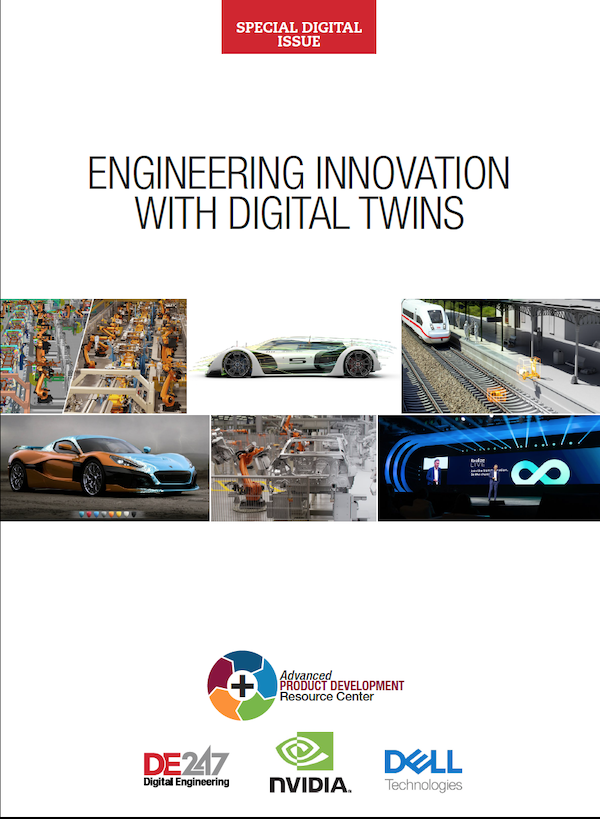Digital Twin Market to Reach $20 Billion by 2025
The rising demand for reducing asset downtime, optimizing process time, reducing time to market, reducing asset downtime and improving operational efficiency is proliferating the growth of the digital twin market, according to Global Market Insights.

Image courtesy of Global Market Insights.
July 2, 2019
The global digital twin market is set to grow from its current market value of more than $3 billion to over $20 billion by 2025, according to a new research report by Global Market Insights, Inc.
The rising demand for reducing asset downtime, optimizing process time, reducing time to market, reducing asset downtime and improving operational efficiency is proliferating the growth of the digital twin market, according to Global Market Insights. The supportive government initiatives related to the construction of smart cities and energy-efficient smart buildings are anticipated to drive the market over the forecast timeline. For instance, in January 2018, the Singapore government invested approximately USD 73 million in data-rich, live digital twin of the Singapore city.
The process support and service application are anticipated to exhibit a lucrative growth at a compound annual growth rate (CAGR) of over 30% between 2019 and 2025. This application include inventory management services and supply chain management services.
The healthcare sector is anticipated to hold a significant market share in the digital twin market. The digital twin offers real-time monitoring and analytics with machine learning and helps to streamline operations and processes in hospitals, improving customer experience.
The manufacturing sector is expected to secure a market share of over 25% in digital twin market by 2025. This growth is attributed to the growth of the manufacturing sector after Industry 4.0 and the emergence of automation systems in the manufacturing sector. According to the World Bank, manufacturing globally contributed to 16% of the total economic value in 2016. This steady growth of the sector is expected to further fuel the demand for digital twin to streamline and optimize the manufacturing process flows.
The Asia Pacific digital twin market is projected to register growth with a CAGR of around 30% between 2019 and 2025. The growing adoption of the IoT and IIoT due to increasing internet penetration coupled with the proliferation of smartphones is fueling the market. The presence of prominent automotive players in the countries including Japan, South Korea, and India is contributing immensely to the digital twin market growth. Additionally, this growth can be attributed to the rapidly evolving e-commerce ecosystem along with heavy investments from venture capitalists to leverage the growing demand for the online market. In 2017-2018, the retail shrinkage percentage of sales in the Asia Pacific region was estimated at around 1.75%, amounting to nearly USD 24 billion. To tackle the growing concerns related to inventory shrinkage, the uptake of digital twin in the region is expected to grow consistently over the forecast timeline.
The companies operating in the digital twin market are focusing on technological innovations, strategic acquisitions, and mergers to strengthen their market position and acquire new customers. For instance, in May 2019, Bentley Systems acquired Keynetix, a UK-based provider of cloud-based software for capturing, modeling, visualizing, and sharing geotechnical data to build subsurface digital twins. These models of underground assets and environments for infrastructure projects will be easily monitored in real time.
Some of the key players operating in the digital twin market are ABB Group, Ansys Inc., Autodesk Inc., Dassault Systèmes, General Electric, IBM Corporation, Microsoft Corporation, Oracle Corporation, Robert Bosch GmbH, SAP SE, Siemens AG, and Wipro Limited.
Sources: Press materials received from the company and additional information gleaned from the company’s website.
Subscribe to our FREE magazine, FREE email newsletters or both!
About the Author
DE’s editors contribute news and new product announcements to Digital Engineering.
Press releases may be sent to them via [email protected].






